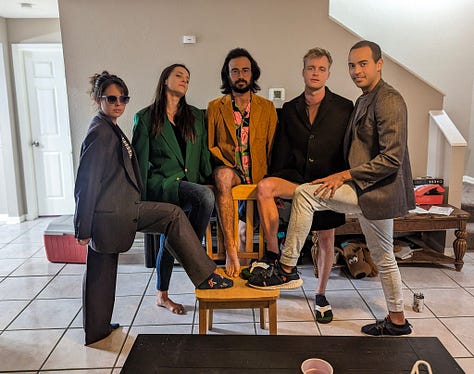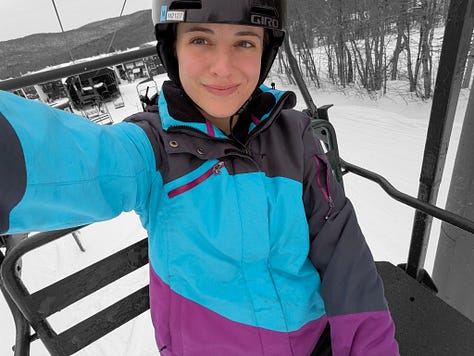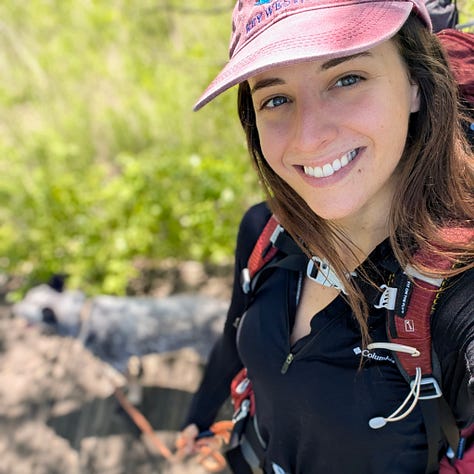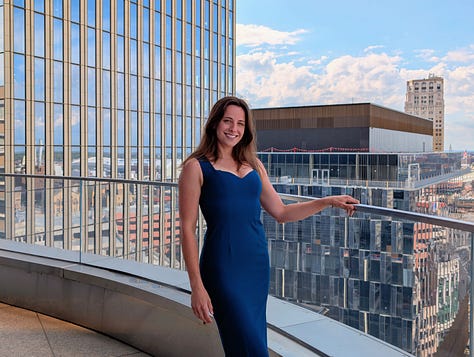I’m Turning 30 Tomorrow. No Kids, No Man, No Mortgage. So... What Do I Have?
If you’re questioning your path, your timing, or your worth, this reflection on turning 30 without the usual milestones might just be your permission slip to exit performative adulthood.
This is another installment in our “Introspective & Philosophical Meanderings” series; please note all other newsletters from TTF will remain 100% free unless time-locked. Huzzah!
Last year, some guy randomly asked about my upcoming birthday and how old I was turning. I smiled and replied, “Twenty-nine.”
His response? “Uh-oh.” Followed by a hard-to-follow, alcohol-fueled rant about how women turning older is bad, the ones that wear makeup have loose morals, and once you turn thirty, it’s all downhill from there. The context he was speaking in was clearly dictated by his views towards women and not much else. It was absolutely not an interaction I wanted to be involved in, but thanks to some truly unfortunate logistics, I felt I had no choice but to grin and bear it.
It seems that, when women age, society views things through a different lens… one that diminishes rather than deepens their worth. While men are often celebrated for aging, women are subtly (and sometimes overtly) warned that their value has an expiration date. This double standard isn't just anecdotal; it's backed by data. A 2018 study analyzing online dating behaviors found that men's desirability increases with age, peaking around 50, while women's desirability declines after 18, with a steep drop after 30.
That same guy went on to ask me some wildly inappropriate personal questions—stuff no one should feel entitled to ask, especially not someone you barely know. I remember thinking how casually people cross lines when it comes to women, especially as we get older. He was in his late forties, an alcoholic, divorced, bankrupt, and bitter… but somehow he still felt superior to me, because I would be turning 30 soon.
The idea that women get involuntarily cut off from their own worth by the age of 30 is a truly alien concept to me, and I am grateful for that. Somehow, I’ve managed to cut through a massive heap of generational trauma and internalized misogyny that might have kept me bound to those beliefs, or any like them, still drifting through the zeitgeist. I know I’m not alone in this; hopefully most of us have already eschewed these suffocating standards and left them in the past where they belong.
I’ve met too many 50-year-old women who eclipse my 25-year-old self in every way imaginable—including beauty, presence, position, and peace of mind—to believe otherwise anymore. The path people take to get where they really want in life rarely looks like it was “supposed” to. They failed epically, skipped entire steps, and rejected certain milestones altogether. And yet, they didn’t just arrive at the goalpost of their achievements… they surpassed them.
Want to know a little secret? If there’s anyone I envy, it’s them.
Success really does take way more time than most of us 20-somethings think, and progress is rarely linear. To me, turning 30 is a relatively mundane, albeit poignant, milestone. I know what I’ll be doing on my birthday: I’ll be ensuring ends meet, nose to the proverbial grindstone, so I can churn out this next chapter with an efficiency that would make my 20-year old self quake in her Timberland boots.
If you’re looking for a mindset shift as you navigate your own turning points, you will likely find something helpful in what follows.









What Should a 30-Year-Old Be?
There’s this underlying assumption that our choices—and how they correlate with our age, our bodies, our lives—are somehow up for public debate. People are strange; attempting to comply with toxic societal standards in 2025 makes them even stranger.
I meet a lot of new people, and nearly every day, someone asks if I have kids. It’s not a novel experience for most women, but lately, it’s constant… dropped into casual conversation like we weren’t just talking about the weather.
Dude.
I usually flash a smile and say, “My sisters already gave my parents all the grandchildren they could ever want. They don’t need me to recreate.” It helps to subdue some of the stranger reactions to me not having kids, but it’s far from the truth. My mom asks me every time I see her, stating that it’s “been too long” and her baby fever is back.
I am 100% certain you recognize this same pattern playing out around you, because that’s how deeply embedded it is. The communities I was raised in, and the lives I am closest to, have largely been shaped by traditional, family-first values that encourage a singular path of marriage, kids, a household of one’s own. Moving away from your hometown, let alone your home state, is often seen as radical and unnecessary. Faith and cultural heritage frequently reinforce these expectations. The questioning does not end with “do you have children”; this simply opens up a litany of new ones, like where my husband is, and why I don’t have one, and who I’m currently living with.
But, if that’s not a very polite line of questioning to ask people coming into their 30’s… what are the right questions to be asking? What kind of questions did people ask you when you sailed on into the sunrise of a new and mysterious decade?
And of course, men face their own questions—the ones that keep them up at night, challenge their worth, and make them feel small. That’s not the story I’m telling. There are countless other writers who can speak to that experience with nuance and care. Here, I’m sharing my own lived experience; it was never meant to be the whole truth, just the part I carry.
Speaking of questions, I have been asking myself this one a lot: am I being my authentic self?
The answer is unforgiving.


